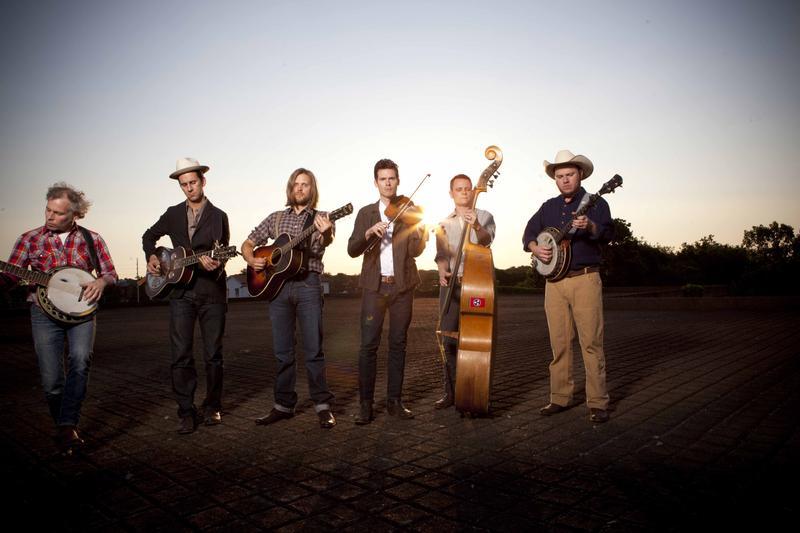When: Wednesday
Where: Missouri Theatre
Doors: 6:30 p.m., Show: 7:30 p.m.
Tickets: $28-$35
The song “Wagon Wheel” has found its way onto playlists all over the world, but what could be better than experiencing the chart-topper in person next week? MOVE chatted with bassist Morgan Jahnig of the Old Crow Medicine Show as the band prepares to come to Columbia.
**[MOVE]:** Reworking a Bob Dylan song, you turned “Wagon Wheel” into a huge success. Where did the inspiration come from?
** [Morgan Jahnig]:** You know, I think (band member) Ketch (Secor), he just heard this little snippet, and it spoke to him and inspired him to want to finish the song, in a way that when you’re a teenager, you’re inspired by little things.
** [M]:** How do you feel about “Wagon Wheel” receiving the RIAA’s Gold certification for selling over 500,000 copies?
** [MJ]:** I think it came as a little bit of a shock to all of us. We always knew that people liked it, but it was a song that never really got any radio play. It was always just played by people at bonfires and little bars, so when we found out we had no idea that sort of thing would happen.
** [M]:** That song has become a huge part of your musical career, but what moment in your musical journey are you most proud of?
** [MJ]:** Looking in the past, that tour that we did with Mumford and Sons, and Edward Sharpe — the Railroad Revival Tour — that was one of those life-changing moments, one of those things that happened, and you can’t believe it’s happening while it’s happening. And then you look back and realize that you were changed by it.
** [M]:** Do you have plans to do something similar like that in the future?
** [MJ]:** Every chance we get, we want to do that, play with people that we like playing with and have it be a sort of musical family journey down the highway, on each others busses, on a steamboat or wherever. We want to reconnect with people that we have spent time with in the past, we want to meet new people and carry this whole idea forward, the idea of a musical community.
** [M]:** How do you go about deciding which bands you want to work with?
** [MJ]:** We put a lot of stock in the people that we know — the people that we’ve already formed a kinship with. The wonderful thing about music is that there is no shortage of people who want to play. When you’re 3 inches from the other person’s face, just having a great time on stage, in that moment you find out, okay, this works, or it didn’t. It’s not being afraid to put it all out on the line on the stage and learn about it. That’s the magic of live music, really. It’s unpredictable in what it is capable of.
** [M]:** I’ve heard numerous genre labels for your band, such as folk or country. Who do you think your music appeals to?
** [MJ]:** It’s people who can recognize the roots of the music that they like or maybe the evolution of the music that they like. It’s accessible to young and old, rich and poor, foreign and domestic, there is a little bit for everybody and it’s fun. We’re not trying to change anybody’s minds. We’re not trying to be anybody. We’re just playing music, and that’s something I think everybody responds to.
** [M]:** Your show at The Blue Note was completely sold out last year. How do you feel about coming to Columbia for a second time?
** [MJ]:** Well, we always love playing in Missouri. I think that was one of the things that set us apart from other bands. We weren’t just playing in bluegrass festivals. We weren’t just playing in folk festivals. We went into the clubs, and we went in to the theaters, and brought this music where it hadn’t been in a while, so places like the Missouri Theatre really tap in to how we got where we are.






